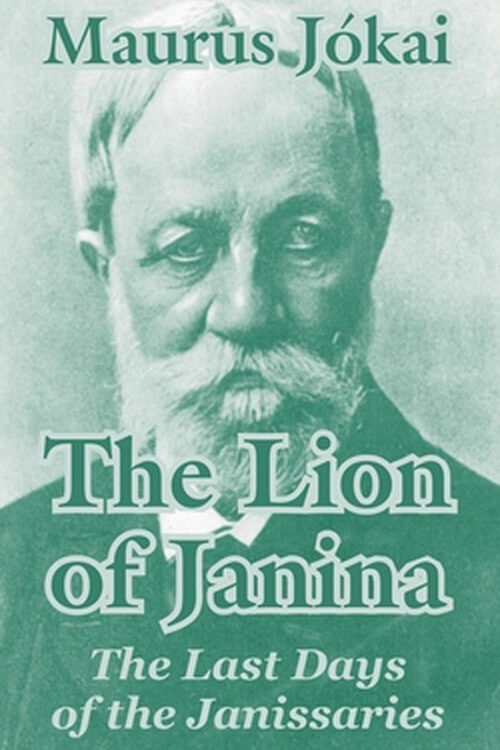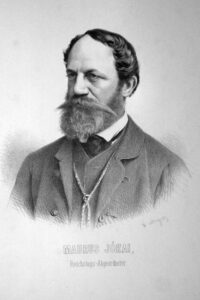
The Lion of Janina, The Last Days of the Janissaries
A savage, barren, inhospitable region lies before us, the cavernous valley of Seleucia—a veritable home for an anchorite, for there is nothing therein to remind one of the living world; the whole district resembles a vast ruined tomb, with its base overgrown by green weeds. Here is everything which begets gloom—the blackest religious fanaticism, the darkest monstrosities of superstition—while an eternal malediction seems to brood like a heavy mist over this region, created surely by God’s left hand, scattering abroad gigantic rocky fragments, smiting the earth with unfruitfulness, and making it uninhabitable by the children of men.
The man rarely visits these parts. And, indeed, why should he come, or what should he seek there? There is absolutely nothing in the whole region that is dear to the heart of man. Even the wild beast makes no abiding lair for himself in that valley. Only now and then, in the burning days of summer, a lion of the wilderness, flying from before the sultry heat, may, perchance, come there to devour his captured prey, and then, when he is well gorged, pursue his way, wrangling as he goes with the echo of his roar.
Solitary travelers of an enterprising turn of mind do occasionally visit this dreary wilderness; but so crushing an impression does it make on all who dare to gaze upon it, that they are scarce wait to explore the historic ground, but hasten from it as fast as their legs can carry them.
What is there to see there, after all? A battered-down wall, as to which none can say who built it, or why it was built, or who destroyed it. A tall stone column, the column of the worthy Simon Stylites, who piled it up, stone upon stone, year after year, with his own hands, being wont to sit there for days together with arms extended in the shape of a cross, bowing himself…
Read or download Book
Mór Jókai
Móricz Jókay of Ásva (18 February 1825 – 5 May 1904), known as Mór Jókai, was a Hungarian novelist, dramatist and revolutionary. Outside of Hungary, he was also known as Maurice Jókai Maurus Jokai or Mauritius Jókai. He was a leader of the outbreak of the Hungarian Revolution of 1848 in Pest. His romantic novels became widely popular among the elite of Victorian England, where he was often compared to Charles Dickens by the press. One of his most famous admirers was Queen Victoria herself.
Early life
He was born in Komárom in the Kingdom of Hungary to József Jókai of Ásva (1781–1837), a member of the Ásva branch of the ancient Jókay noble family; his mother was noblewoman Mária Pulay (1790–1856). As a boy, he was timid and his health delicate, so he was educated at home until the age of ten when he was sent to Pozsony (today Bratislava, Slovakia). He then attended the Calvinist college of Pápa (Pápai Református Kollégium, where he first met Sándor Petőfi and Sándor Kozma.
When Jókai was twelve, his father died. His family wanted him to become a lawyer like his father had been, and he completed his education in Kecskemét and Pest to that end. He won his first case as an independent lawyer.
Career
Jókai was bored by his work as a lawyer, and he was encouraged in his art by the praise the Hungarian Academy of Sciences gave his first play (Hungarian: Zsidó fiú, lit. ’Jewish Boy’). In 1845, he moved to Pest where Petőfi introduced him to literary circles. Within the year his first noted novel (Hungarian: Hétköznapok, lit. ’Working Days’) was published as a serial by Pesti Divatlap, followed by a hardcover edition in 1846. It was received with widespread critical acclaim. The following year, Jókai was appointed the editor of Életképek, the then-leading Hungarian literary magazine, and gathered a circle of young writers around himself.
At the outbreak of the revolution of 1848, Jókai was enthusiastic about its nationalist cause. Before the revolution, he had been a moderate liberal who opposed excesses, but the nationalist victories of April and May 1849 persuaded him to support Lajos Kossuth’s deposition of the then-reigning House of Habsburg. When the revolutionary war ended in defeat, he was present at the surrender at Világos (today Şiria, Romania) in August 1849. He intended to commit suicide to avoid imprisonment, but his wife, Róza Laborfalvi helped him escape on foot through Russian lines to Pest.
For the next fourteen years, Jókai was politically suspicious of the regime. He devoted himself to the rehabilitation of the Hungarian language, writing thirty novels and volumes of tales, essays, and literary criticism. His renowned works Erdély aranykora (‘The Golden Age of Transylvania’), its sequel Török világ Magyarországon (‘The Turks in Hungary’), Egy magyar nábob (‘A Hungarian Nabob’), its sequel Kárpáthy Zoltán, Janicsárok végnapjai (‘The Last Days of the Janissaries’), and Szomorú napok (‘Sad Days’) were written during this time.
After the re-establishment of the Hungarian constitution by the Austro-Hungarian Compromise of 1867, Jókai took an active part in politics. He was a long-time supporter of Kálmán Tisza’s administration, sitting for over twenty years in parliament and founding the government paper A Hon in 1863. In 1897, King Francis Joseph appointed him a member of the Upper House. In 1899, he caused a country-wide scandal by marrying Bella Nagy, a twenty-year-old actress.
Jókai died in Budapest on 5 May 1904. He was buried with his first wife (who had died in 1886) in the Fiume Road Graveyard.






